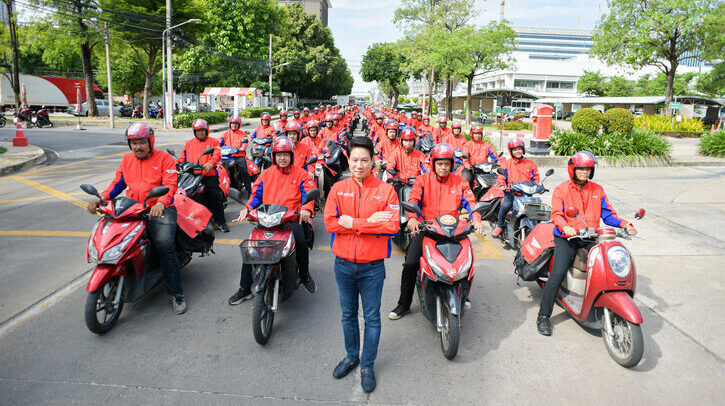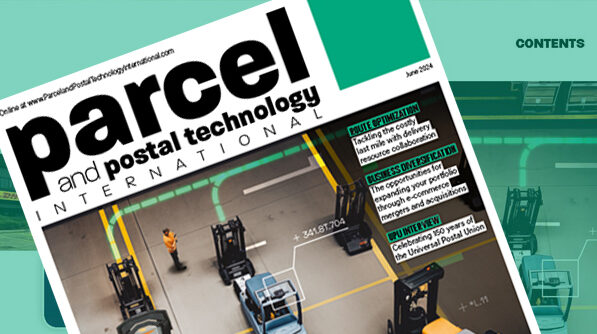Thailand Post CEO Dr Dhanant Subhadrabandhu talks business diversification and digital transformation with Hazel King
It’s a question facing postal operators around the world – how to prevent declining lettermail volumes and a slowdown in e-commerce parcel growth from adversely affecting your bottom line. Many operators are looking at innovative ways to diversify their businesses and offer services that meet their customers’ changing needs.
Thailand Post is no different and is investing in new logistics services as well as automation technologies and a digital transformation project that will futureproof its position as the country’s incumbent operator.
“We have gone through a very challenging period,” explains Dr Dhanant Subhadrabandhu, CEO of Thailand Post. “E-commerce is not growing like it was a couple of years ago because of the economic slowdown and people’s reduced spending power. We also have lots of competition in the last-mile delivery sector, so we are now focusing more on mixed markets – for example, we are sending cargo, medicine, cold chain and livestock such as fish, so we are focusing on providing a variety of different services to remain competitive.”
Addressing the issue
Over the past few years, Thailand Post has seen a decline in annual revenues, which have fallen from Bt27.41bn (US$754m) in 2019 to Bt19.98bn (US$549m) in 2022, according to Statista. However, in February 2024 The Bangkok Post reported that revenue for the first half of this year was Bt10.8bn (US$297m) – a 13% increase over the same period in 2022 – suggesting that things are looking up for the post.
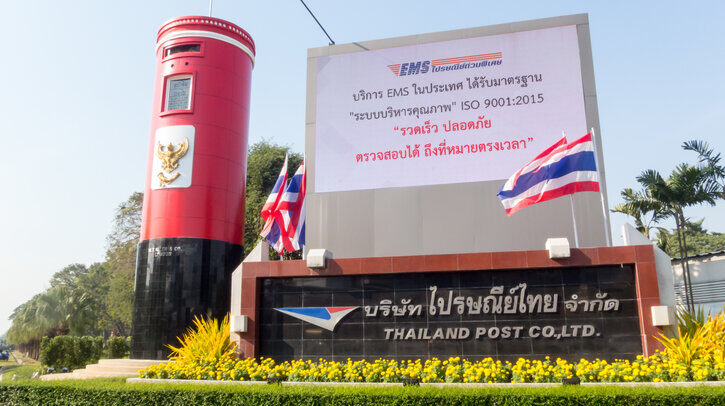
With e-commerce revenues in the country also set to rise – from US$19.28bn in 2024 to US$32.32bn by 2029, according to Statista – Thailand Post is looking to capitalize on the retail market. “Our retail business is both online and offline – we have our own e-commerce platform that sells for SME businesses. We know in each region which items are local to that area, so we put them online and sell them in the relevant post offices,” explains Subhadrabandhu. “We also ask the postmen to take these products to the households. Each year, we can make US$20m revenue from our retail business.”
However, competition in e-commerce is fierce, with many of the big companies in the sector offering their own logistics services, so Thailand Post needs to ensure it is adaptable.
“With spending power not growing very much but the channels in which to spend it increasing – social commerce is growing very fast in Thailand – the challenge is to follow all the channels, connect with them and provide a service based on their KPI,” Subhadrabandhu continues. “It is different between each platform, so the service need is ever evolving. We must adjust all the time to keep up with competition.
“We are the incumbent provider in Thailand and the quality of our logistics is based on having a strong process. But that can make you less flexible, so we need to find a way to have strong processes as well as flexibility within those processes.”
With this in mind, the post is investing in automated sorting machines for mixed mail in its sorting centers and is undergoing a modernization and digital transformation program with Escher.
Delivery network digital transformation
Announced in October 2023, the collaboration will see Thailand Post deploy Escher’s advanced logistics capabilities, including track and trace, intelligent dispatch and real-time route optimization to digitally transform its operations with improved security and end-to-end visibility across its entire delivery network.
“We are like other incumbent postal operators around the world – we have nationwide coverage; the postman knows all the addresses and the local people because
we have been set up for a long time,” Subhadrabandhu asserts. “However, when it comes to express parcel delivery services, this strength is not important to those customers. They just want their parcels sent quickly, safely and conveniently, so by investing in digitalizing our logistics capabilities, we can compete with other operators in that space.”
According to Escher, Thailand Post will implement its solutions using a control tower approach. The result will be a unified, end-to-end delivery network that tracks and enables real-time operational insights and improved control of all parcels, packets and mail items across the post’s network. This approach will provide enhanced visibility, greater delivery flexibility and improved processes and efficiencies, and chart a better path toward sustained profitability.
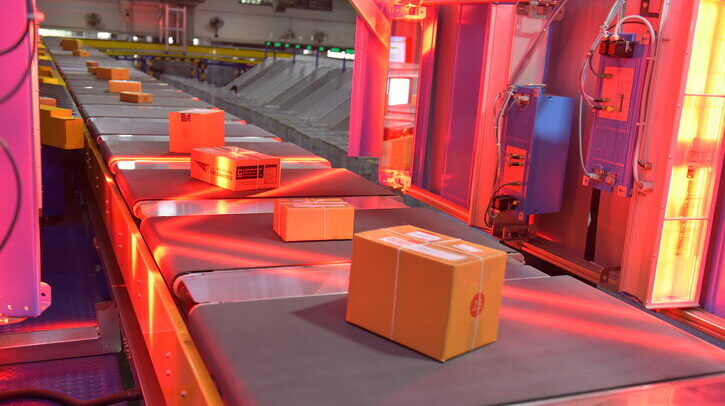
“Thailand Post’s delivery network digital transformation will be a true game-changer in the industry,” explains Brody Buhler, CEO of Escher. “Its modernized delivery network, from the first mile to the last mile, will ensure an improved customer experience with features such as real-time package redirection and faster delivery. Intelligent dispatch and real-time route optimization will help Thailand Post improve efficiency, reduce costs and enhance service quality. Furthermore, this digital transformation initiative futureproofs Thailand Post, making it responsive to customer needs in its competitive landscape to accelerate growth.”
Electronic services
Another part of the digital transformation taking place at Thailand Post is the development of digital postal IDs. Each customer now has access to an individual QR code that relates to their exact address, improving the speed and accuracy of delivery.
“Everyone can have a code no matter where they live,” says Subhadrabandhu. “The code is individual to each person; they just need to register with Thailand Post. It helps with the mail sorting too, as the automated sorting machines can read the code and not have to cope with different handwriting. It also helps the accuracy of the postman because the code has the latitude and longitude of the location and is individual to the person, who the mailman will already know. You can have multiple delivery IDs for different addresses too.”
The post is also offering an electronic mail channel called Prompt Post to help it withstand falling physical mail volumes and revenue. Subhadrabandhu explains, “In emerging markets I see the lettermail volumes dropping very fast compared with Europe. Given that is the case, we must diversify and find alternatives to keep up the revenue – we still have the cost of meeting the nationwide network requirements but the revenue is dropping with the falling mail volumes.
“In response, we have created an electronic channel as part of our network – a digital element to support the physical network – to deliver electronic mail. We create the digital correspondence through our trusted online service, conduct ID verification for both the sender and recipient and enable e-signatures and e-timestamps to confirm the time the correspondence was sent.”
The service is available online and through the Prompt Post mobile app. It is suitable for official government documents as well as personal mail and print media.
Sustainable focus
Digitalization isn’t the only focus for the future of Thailand Post – the organization is also working toward carbon neutrality by 2050 and net zero emissions by 2065. Like many postal operators, it has invested in electrifying its last-mile fleet and introduced 250 electric vans on major delivery routes last year. “We’ll be investing in a lot more EVs for the last mile. We have a plan to replace the current postal vehicle fleet with more than 1,000 electric vehicles within the next five years,” Subhadrabandhu says.
The post is also exploring opportunities in renewable fuel technologies. In February 2024 it announced a partnership with BIG and Electricity Generating Public Company Limited (EGCO Group) to develop the use of hydrogen energy in its logistics services (see Hydrogen testing at end of article).
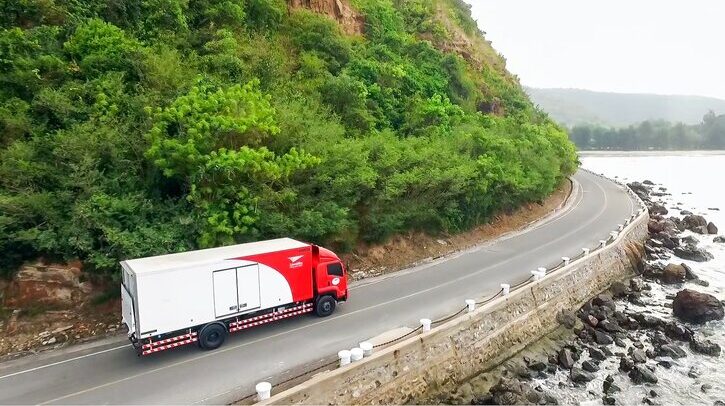
“We are looking at alternative clean energy because there are some limitations for electric vehicles in long-haul operations. As far as we’ve tested, the EV truck can run maybe 300km at most and we cannot stop and charge the battery along the way because of the time constraints in which we must make deliveries,” continues Subhadrabandhu.
“Therefore, we are exploring the possibility of utilizing hydrogen as energy for our trucks. We don’t want to only be a user of this energy – we are exploring the opportunity of investing in the upstream energy as well so we can produce it and sell it as part of our further business diversification plans.”
Thailand Post is also involved in waste management projects, including the recycling of 530,000kg of paper parcel and letter packaging into table and chair sets for the national Border Patrol Police Schools network, and a partnership with Thai mobile operator AIS to handle electronic waste.
“The logistics industry is one of the biggest carbon generators and so we definitely need to take care of the environment. ESG is a key focus,” Subhadrabandhu confirms. “It is a long road, and we need support from the government sector too, to reach our goals.”
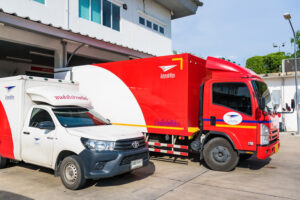
Hydrogen testing
Earlier this year, Thailand Post announced it would be working with BIG and EGCO Group to develop the use of hydrogen energy in its logistics services. The partnership aims to elevate energy management standards, bolster the capacity to deliver parcels and postal items sustainably, and align with the country’s net zero objective by 2065.
Thailand Post will spearhead the provision of routes for testing hydrogen energy applications in land transportation and logistics domestically, with future prospects for international expansion.
BIG will oversee the procurement of transportation vehicles and hydrogen filling operations, leveraging innovative approaches to hydrogen energy use for vehicles. EGCO Group will play a pivotal role in providing collaborative support and expertise in the development and exploration of hydrogen innovation across various domains to enhance transportation capabilities, including the integration of renewable energy sources in hydrogen production for the logistics sector.
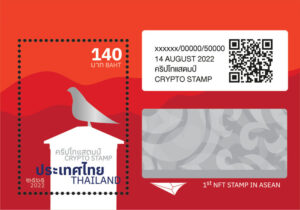 Crypto stamps
Crypto stamps
In August 2022, Thailand Post became the first postal service in southeast Asia to introduce NFT (non-fungible token) stamps. The 50,000 collectible ‘crypto stamps’ were developed as part of the post’s 140th anniversary celebrations.
Each NFT stamp featured a unique artwork and colors from leading Thai artists, as well as the postal service’s logo, a mailbox and other symbols of Thailand Post.
According to the UPU, crypto stamps bring the traditional stamp collecting experience into the digital age. A crypto stamp is a physical stamp that is connected to its digital twin stored in a blockchain network, typically in the form of a non-fungible token (NFT), which represents a unique and verifiable digital asset. By linking the digital and the physical counterparts of this product, the security-related advantages of the blockchain technology are transferred onto the physical stamp, making it counterfeit-proof. Moreover, this linkage enables collectors to engage with stamps in new, exciting ways.
This article was originally published in the June 2024 issue of Parcel and Postal Technology International.


